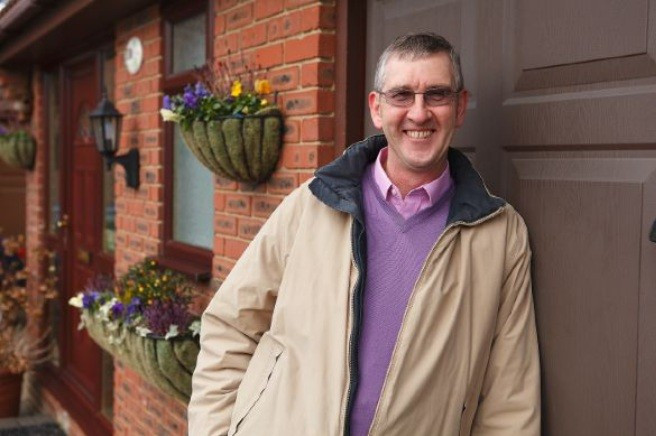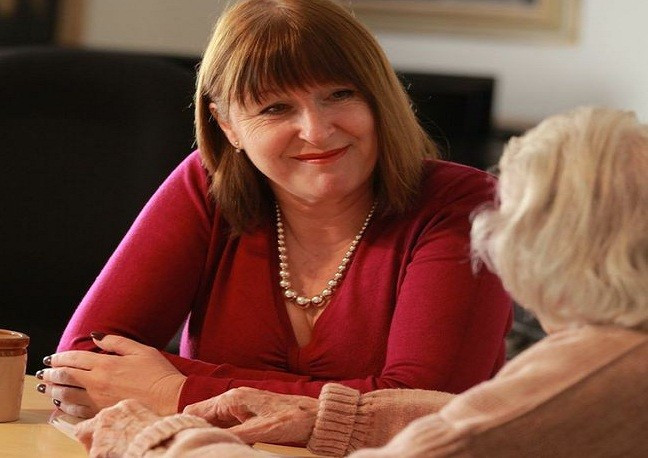'Sod Dementia!' - Diagnosed Keith Oliver Insists Condition is no Cause to Despair

A man's decision to choose death instead of life with dementia shook people with the condition and those who help them, last month.
The unnamed individual opted to kill himself at the Dignitas clinic in Switzerland, soon after being diagnosed with the condition in the UK.
His profound and sad choice sparked sympathy for him and his family. The prospect of diminishing mental faculties from dementia, like a reservoir being steadily drained, is very bleak indeed. Memory loss, communication problems and other cognition issues rob so many people of their independence, making a diagnosis a hammer blow.
For relatives, the diagnosis is hardly less traumatic. They face the painful prospect of witnessing a loved one vanish into a fog of dementia, which can leave them unable to recognise their nearest and dearest. Spouses find they are suddenly no longer wives or husbands, but carers instead.
So is it really a fate worse than death, as the poignant suicide of this man suggests? For 820,000 Brits with the chronic condition today - a figure set to grow with the aging population, the question has been raised by this case.
Keith Oliver's response is a straight 'no.' The former headteacher from Canterbury in Kent, is somebody who knows.
He was diagnosed by a doctor on the day of the year when it is compulsory to smile and have fun - New Year's Eve 2010. It followed months of tests and a dawning realisation lurking in his mind.
Recalling that moment to IBTimes UK he said; "So often dementia is shown in an extremely negative way; there is fear and misunderstanding about it. People think it's a rapidly downhill path because they only see the end of the condition. But the illness is only portrayed in its final stages, not at the stage I'm in."
On the sad case of the dementia suicide, Keith insisted: "It does not need to be like that at all."
Talking with the former primary school headmaster about dementia is inspiring, not depressing. The 57-year-old shows a strong desire to savour the good things in life with new relish, not succumb to despair.
But he admitted: "You could have knocked me down with a feather when I got the diagnosis.
"My wife was with me and afterwards we went for a walk down the beach. I was determined then that it would not get the better of me."
Now he gets valuable support from experts such as Admiral Nurses provided by the charity Dementia UK. They help patients and importantly, carers. Hearing Keith's message of hope makes the choice by a fellow sufferer to end it all sadder still.
His condition is like the changeable British weather, said Keith. The fog, to be precise.
He said: "Sometimes on the foggy days, I ask myself how to deal with it and whether I should just wait for the fog to lift.
"Then I think 'sod it' and roll up my sleeves and do something I love like gardening. It helps force the issue.
"Dementia's best friend is apathy, because if people give in to it and think 'it's got the better of me,' they cannot live life as fully as possible. Then it does get the better of you."
Keith may be a natural optimist, but there's no disguising the harsh realities of living with what he calls this "subtle process" and "wretched condition." He needs care from wife Rosemary and Admiral Nurses for when the "fog" of dementia descends upon his mind.
A big portion of the burden falls upon Rosemary, which is why a big focus of the Admiral Nurses are the ones affected most directly by a loved one's illness. They are "Godsends" according to Keith.
Their Admiral Nurse helps to keep their relationship from turning completely into one of carer and invalid, by providing counselling and other support to maintain their union.

"Admiral Nurses are a real godsend and they do a fantastic job of supporting the carer as well as the person with dementia," Keith said. "The fact is no matter how close you are with your partner; there are times when this situation gets raw. I feel responsibility for Rosemary."
He feels sympathy for the man who opted for an assisted death at Dignitas, instead of living with dementia.
"He must have gone through a horrendous experience in receiving the diagnosis," Keith said. "It would have been a heck of a swipe if I had gone in to the doctor one day and then walked out with a diagnosis.
"People need space, time and support to come to terms with their diagnosis in order to avoid this Dignitas situation. Responsibility lies with the medical professionals to judge how and when a person should find out."
Keith is fighting against the dying of the light by choosing to help others living with dementia. "I think part of it is anger that I have this wretched condition and I'm channelling this anger," he said. "I know that I will lose the war to it, but I will win the battles along the way."
Watch Keith's video about living with the condition.
For information about Admiral Nurses, contact Dementia UK on 0845 257 9406 or email direct@dementiauk.org
© Copyright IBTimes 2025. All rights reserved.






















